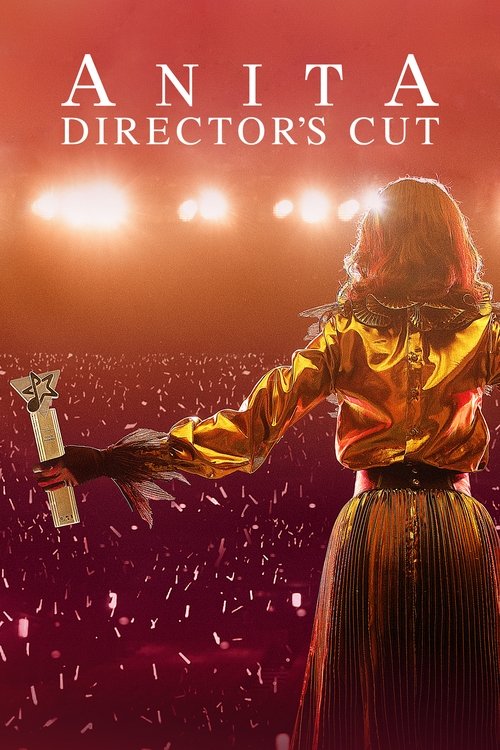
Ask Your Own Question
What is the plot?
In Episode 19 of "The Stories of Lion Rock Spirit," the episode opens with a tense atmosphere in the community as the residents of Lion Rock are grappling with the aftermath of a recent crisis. The camera pans over the neighborhood, showcasing the worried faces of the locals as they gather in small groups, discussing the challenges they face. The main character, a community leader named Ah Choi, is seen pacing in his office, visibly stressed about the situation. He feels a deep sense of responsibility for the well-being of his neighbors and is determined to find a solution.
As the scene shifts, we see Ah Choi meeting with a group of community members in a local hall. They discuss the need for unity and support in the face of adversity. Tensions rise as differing opinions emerge about how to address the issues at hand. Some members advocate for immediate action, while others suggest a more cautious approach. Ah Choi listens intently, trying to mediate the discussion, but he can feel the weight of their expectations pressing down on him.
The narrative then transitions to a subplot involving a young couple, Mei and Jun, who are struggling with their own personal challenges amidst the community turmoil. Mei expresses her fears about their future, feeling overwhelmed by the uncertainty surrounding them. Jun reassures her, promising that they will face whatever comes together. Their emotional exchange highlights the personal stakes that the community members have in the larger narrative.
Back in the community hall, Ah Choi makes a pivotal decision to organize a community meeting to address the issues directly. He believes that open dialogue is essential for healing and progress. The scene shifts to the preparations for the meeting, where Ah Choi and a few volunteers are seen putting up posters and arranging chairs. The atmosphere is charged with anticipation as word spreads about the upcoming gathering.
The day of the community meeting arrives, and the hall is filled with residents, all eager to voice their concerns. Ah Choi opens the meeting with a heartfelt speech, emphasizing the importance of coming together as a community. As various members take turns sharing their thoughts, the emotions in the room fluctuate between hope and despair. A heated argument breaks out between two residents, highlighting the deep divisions within the community. Ah Choi steps in to calm the situation, reminding everyone of their shared goals.
As the meeting progresses, a surprising twist occurs when an unexpected guest arrives: a government official who has come to address the community's concerns. The official presents a proposal for assistance, but the terms are controversial and spark further debate among the residents. Some see it as a lifeline, while others view it as a potential threat to their autonomy. Ah Choi finds himself at the center of this conflict, trying to balance the differing opinions while maintaining the trust of his neighbors.
In the climax of the episode, tensions reach a boiling point when a faction of residents decides to stage a protest against the government proposal. Ah Choi is torn between supporting the protest and advocating for a more diplomatic approach. He ultimately chooses to join the protest, believing that it is essential to stand up for the community's rights. The protest scene is intense, with passionate speeches and emotional displays of solidarity among the residents.
The episode concludes with a powerful moment as the protest gains media attention, bringing the community's struggles to a wider audience. Ah Choi stands at the forefront, feeling a mix of pride and anxiety about the path ahead. The final shot lingers on his determined expression, hinting at the challenges that still lie ahead for him and the community as they navigate their future together.
What is the ending?
In the ending of "The Stories of Lion Rock Spirit," Season 1, Episode 19, the main characters face the culmination of their struggles and conflicts. The episode concludes with a sense of resolution as they confront their pasts and make choices that will shape their futures. The community comes together, showcasing unity and resilience, while individual characters find closure in their personal journeys.
As the episode unfolds, the scene opens with a somber atmosphere in the community center, where the characters gather to discuss the recent challenges they have faced. The air is thick with tension as they reflect on their past mistakes and the impact of their decisions. The camera pans across the faces of the main characters--each one displaying a mix of regret, determination, and hope.
Next, we see Mei, who has been grappling with her feelings of guilt over a past incident that affected her family. She stands up, her voice trembling but resolute, as she shares her story with the group. Her vulnerability resonates with others, prompting them to open up about their own struggles. This moment of honesty fosters a deeper connection among the characters, highlighting the theme of community support.
Transitioning to a more uplifting scene, the characters decide to organize a community event to celebrate their resilience. They work together, painting banners and preparing food, showcasing their newfound unity. Laughter and camaraderie fill the air, contrasting sharply with the earlier tension. This scene emphasizes the importance of coming together in times of hardship.
As the event unfolds, we see various characters taking on leadership roles. For instance, David, who has been a reluctant leader throughout the series, steps up to give a heartfelt speech. He reflects on the journey they have all taken and the strength they have found in one another. His words inspire hope and determination, and the crowd responds with cheers, reinforcing the theme of collective strength.
In the final moments of the episode, the camera focuses on each main character as they find their own paths forward. Mei, having confronted her past, decides to pursue a career in social work, aiming to help others who have faced similar challenges. David, now more confident, takes on a mentorship role within the community, guiding younger members. Other characters, like Lily and Tom, also find their own resolutions, with Lily deciding to return to school and Tom committing to a local charity.
The episode closes with a wide shot of the community center, now filled with laughter and joy, symbolizing the healing that has taken place. The characters stand together, united and hopeful for the future, embodying the spirit of resilience that the series has championed throughout its narrative. The screen fades to black, leaving viewers with a sense of closure and optimism for the characters' journeys ahead.
Is there a post-credit scene?
In "Episode 19" of "The Stories of Lion Rock Spirit," there is indeed a post-credit scene that adds an intriguing layer to the episode's narrative.
As the credits roll, the screen fades back in to reveal a quiet, dimly lit room filled with photographs and newspaper clippings pinned to a corkboard. The camera slowly pans across the board, showcasing images of various community events and individuals who have been impacted by the Lion Rock Spirit. Each photo captures moments of joy, resilience, and unity among the residents.
The scene then shifts to a close-up of a particular photograph featuring a group of children playing together, their faces lit with laughter. The camera lingers on this image, emphasizing the innocence and hope that the Lion Rock Spirit embodies.
Suddenly, the door creaks open, and an older character, who has been a mentor throughout the series, steps into the room. He gazes at the photographs with a mix of nostalgia and pride. His expression reveals a deep emotional connection to the community and the legacy of the Lion Rock Spirit.
He picks up a newspaper clipping that highlights a recent community achievement, and a soft smile spreads across his face. As he places the clipping back on the board, he murmurs to himself about the importance of continuing to foster this spirit of togetherness and support among the residents.
The scene concludes with him turning off the light and leaving the room, the camera focusing on the corkboard one last time before fading to black, leaving viewers with a sense of hope and the promise of ongoing community strength. This post-credit moment encapsulates the essence of the series, reinforcing the themes of unity and resilience that have been central to the storyline.
How does the relationship between the protagonist and their mentor evolve in this episode?
Throughout Episode 19, the relationship between the protagonist and their mentor deepens as they confront a shared adversary. The mentor provides crucial guidance, but also faces their own doubts, leading to a poignant moment where they must reconcile their past mistakes to support the protagonist's growth.
What challenges does the main character face in Episode 19?
In Episode 19, the main character, who is deeply committed to their community, faces significant challenges as they navigate a crisis that threatens the stability of their neighborhood. The pressure mounts as they must rally the residents to come together and confront external forces that seek to exploit their vulnerabilities.
What role does the community play in the events of Episode 19?
In this episode, the community plays a pivotal role as they unite in response to the challenges posed by outside threats. Their collective efforts highlight themes of solidarity and resilience, showcasing how individual stories intertwine to create a powerful force for change.
What internal conflicts does the protagonist experience in Episode 19?
The protagonist grapples with feelings of inadequacy and fear of failure in Episode 19. As they take on a leadership role, they struggle with self-doubt and the weight of expectations, leading to moments of vulnerability that reveal their deeper motivations and desires.
How does the antagonist's actions impact the storyline in Episode 19?
The antagonist's actions in Episode 19 serve as a catalyst for the protagonist's development. Their manipulative tactics create tension and force the protagonist to confront their own values, ultimately leading to a climactic confrontation that tests the strength of their resolve and the bonds within the community.























































